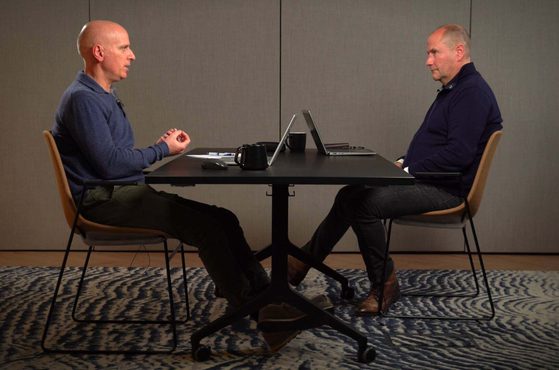Deepfakes & AI-powered cybercrime in sport — how can athletes & clubs protect themselves?

We discuss the mounting dangers of AI-powered cybercrime across the world of sport with David Andrew — the Founder and Managing Partner of Tiaki.
Read more
We make the difference. Talk to us: 0333 004 4488 | hello@brabners.com
AuthorsAndreas Petrou
8 min read
Technology, Media & Telecoms, Commercial & Contracts, Intellectual Property, Games & Interactive Entertainment

In January 2022, Microsoft entered into a $68.7bn (c£57.3bn) deal to buy Activision Blizzard. The deal has become of interest to competition regulators around the world and is currently up in the air whilst it is being investigated. Andreas Petrou in our Commercial Team discusses the background to the acquisition and gives an update on the current state of play.
Activision Blizzard is one of the largest gaming companies in the world, owning the rights to and producing major gaming franchises such as Crash Bandicoot, Guitar Hero, Candy Crush, and online gaming heavyweights like Call of Duty, Overwatch and World of Warcraft.
Microsoft, as we all know, is one of the most successful companies in the world and has business operating across computer hardware, software, videogames and cloud services amongst others. With regards to videogames, Microsoft already owns (an estimated) 60-70% of global cloud gaming services and has significant strengths through ownership of the Xbox console gaming platform, Windows, as well as global cloud computing infrastructure Xbox Cloud Gaming and Azure.
It came as no surprise then that Microsoft’s proposed acquisition of Activision Blizzard was of interest to competition regulators globally and is under investigation by the Competition and Markets Authority (“CMA”) in the UK, the European Commission in Europe, and under challenge from the Federal Trade Commission in the USA. Regulators have generally raised concerns about the potential impact on competition in the console and cloud gaming markets, in particular the ability that Microsoft might have in leveraging Activision Blizzard’s game library to gain advantage against its competitors, such as the likes of Sony.
Microsoft has stated that the main purpose for the deal is to assist Microsoft in the mobile gaming market, allowing it to make more mobile phone games, and help catch up to the mobile stores currently being offered by Google and Apple. The acquisition would also let Microsoft put more headline titles on Game Pass, its cross-platform subscription gaming service.
That’s all good and well, however one of the titles which is owned by Activision Blizzard is Call of Duty…that little known title that is only one of the most successful gaming franchises over the last 20 years and, according to Wikipedia, the 4th best-selling video game franchise of all time (with the latest instalment – Modern Warfare 2 – bringing in $1bn in its release weekend).
Companies like Sony are understandably concerned – more than half of all copies of Modern Warfare sold during its opening weekend in the UK were for Sony’s PlayStation – fearing that if the acquisition goes ahead, Microsoft could make Call of Duty and other big titles Microsoft exclusives, or at the very least ensure that Microsoft platforms get the best experience of those games to the detriment of other platforms and competitors.
In the UK the CMA is now carrying out an in-depth ‘phase 2’ investigation into the proposed acquisition, following completion of ‘phase 1’ of its investigation in September 2022.
As part of phase 2, the CMA released its provisional findings in early February, finding that the deal:
raises console and cloud gaming concerns, potentially strengthening Microsoft in cloud gaming and stifling competition,
could harm UK gamers a) who may not be able to afford expensive consoles, and b) by weakening the important rivalry between Xbox and PlayStation gaming consoles,
potentially resulting in higher prices, fewer choices, or less innovation for UK gamers. Microsoft buying one of the world’s most important game publishers could reinforce Microsoft’s already strong position and substantially reduce its cloud gaming and console competition in the UK, the CMA noting in particular that:
“Xbox and PlayStation compete closely with each other at present and access to the most important content, like CoD, is an important part of that competition. Reducing this competition between Microsoft and Sony could result in all gamers seeing higher prices, reduced range, lower quality, and worse service in gaming consoles over time.”
As part of its phase 2 investigation, the CMA held calls or meetings with third parties – competitors or potential competitors with the Microsoft-Activision Blizzard merged entity – releasing findings from those calls on 15 February 2023. Of the six parties interviewed (which weren’t named but will have surely included Sony), half said that the acquisition would have a negative impact on competition, “including by affording Microsoft the ability and incentive to foreclose potential and existing rivals in the console buy-to-play, console multi-game subscription and cloud gaming spaces”. All but one (who was not active in cloud gaming services) noted that content, and in particular AAA content (of which Activision Blizzard has a significant catalogue), was an important element of a successful cloud gaming offering.
The statutory deadline for completion of the CMA’s phase 2 investigation is 26 April 2023. Updates can be found here.
In the EU, regulators have extended their deadline for a decision to 25 April 2023, and the case brought in the USA by the Federal Trade Commission is currently pending with an evidentiary hearing scheduled for 2 August 2023.
Alongside its provisional findings report, the CMA also published a notice of possible remedies, setting out, as a starting point for discussion between parties and third parties, actions which Microsoft and Activision Blizzard might take in order to deal with the competition issues identified.
The CMA has published guidance on merger remedies, which can be found here. Remedies are generally classified as either structural one-off measures addressing the market participants and/or their market share, or behavioural, continuing measures relating to the behaviour of the parties. For example, a divestiture (selling-off) of part of the business of one of the parties would be structural, whilst a requirement for ongoing behaviour such as a price cap or supply commitment would be behavioural.
The CMA generally prefers structural remedies as the primary source of remedial action, as those measures are most likely to deal with the competition at source and rarely require ongoing monitoring. The CMA did not deviate from this position in its notice of possible remedies here, identifying the following possible structural remedies:
a partial divestiture of Activision Blizzard, for example divestiture of:
the Call of Duty business;
the Activision segment of Activision Blizzard (which would include the Call of Duty business); and
Activision and Blizzard segments of Activision Blizzard, to include Call of Duty and World of Warcraft businesses;
prohibition of the merger entirely, though not ruling out consideration of behavioural remedies (noting that Microsoft had informed them of existing and potential contractual arrangements with third parties in relation to access to Call of Duty).
For its part, it seems that Microsoft has been keen to push the behavioural remedies angle as well as building support with other competitors seeking to reassure that Call of Duty will remain 100% equally accessible to relevant platforms. And recently announcing 10 year deals with both Nintendo and Nvidia – with Nintendo to bring Call of Duty to Nintendo players on the same day as it is released on Xbox (with full parity on features and content), and with Nvidia to bring all its Xbox PC games, to include Call of Duty, to stream via Nvidia’s GeForce Now platform. There have also been reports that Microsoft has offered Sony a deal to put Call of Duty games on its PlayStation Plus service.
Whilst Microsoft has argued that it would be stupid not to sell massively successful games to millions of customers, its recent track record doesn’t fill competitors with confidence; after Microsoft acquired Bethesda (makers of Fallout and Skyrim), it has since said that some of Bethesda’s future games will be exclusives for Xbox.
The head of Xbox Phil Spencer, has also recently downplayed the importance of the deal, saying that although an important acquisition, Xbox will continue to exist if the deal does not go through. Whilst this is no doubt true based on Microsoft’s existing strength, it also feels like a bit of face-saving PR (both generally and with an eye towards shareholders) if the deal is on the rocks and should it ultimately fall through or be watered down significantly.
There will certainly be continued discussions over the forthcoming weeks between parties, competitors and the competition regulators, and behind the scenes horse-trading. The rest of the video game industry will be keeping a close eye on developments and will be looking towards the UK and EU regulator deadlines, which are within a day of each other on 26 and 25 April respectively, for further certainty on what the deal will look like, if it goes ahead at all.

We discuss the mounting dangers of AI-powered cybercrime across the world of sport with David Andrew — the Founder and Managing Partner of Tiaki.
Read more

We explain the importance of the Supreme Court decision and what it means for innovators looking to gain patent protection for computer-related inventions.
Read more

We explore the new Order that gives local authorities a new ability to shape below-threshold procurement markets in ways that were previously off-limits.
Read more